Blog
AI in Music Production: Where are We Now, and What's Next?
14 Dec '2023
Get up to date with the latest in the world of AI for musicians – from MIDI generation to mixing and mastering!
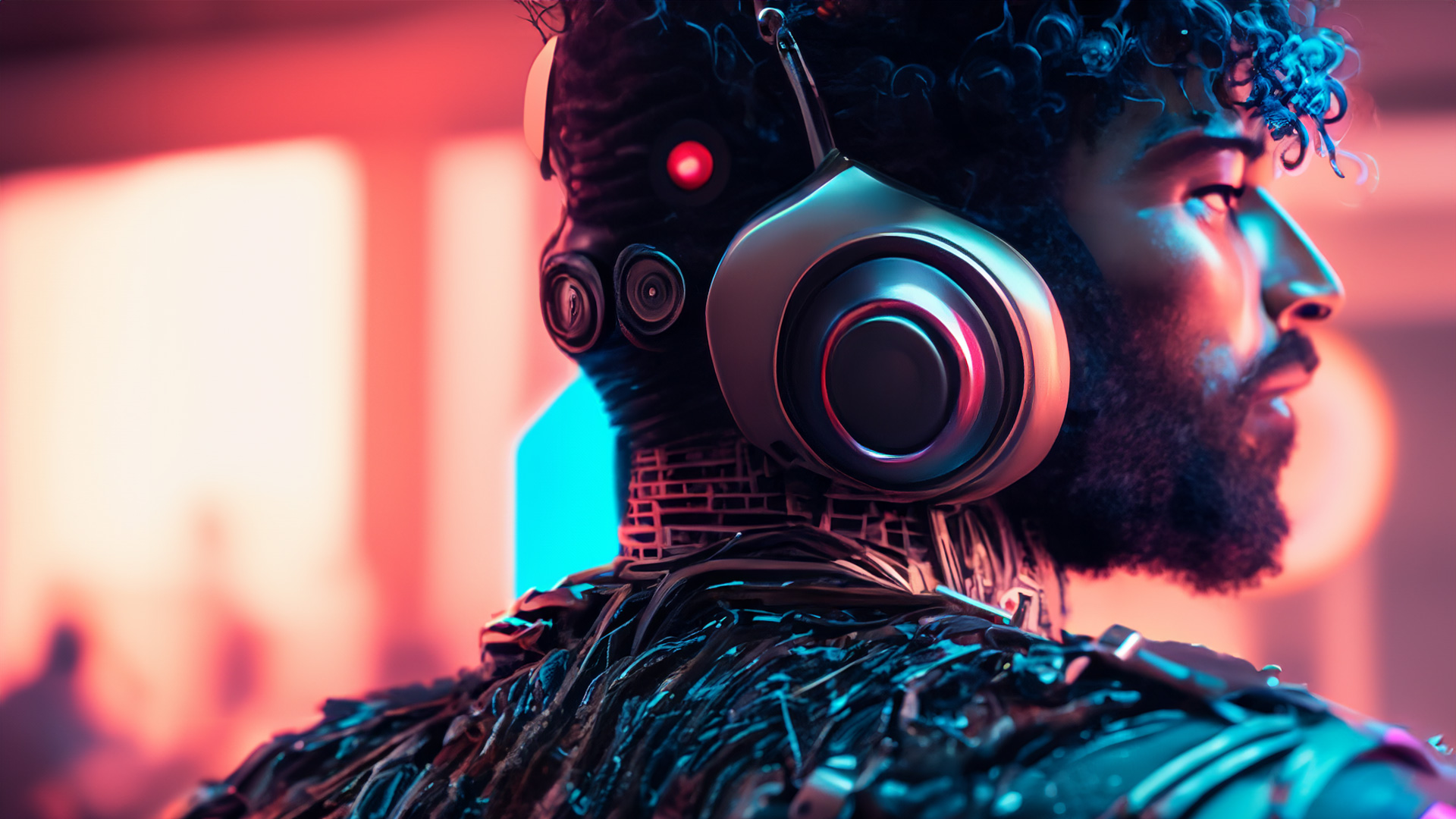
Everywhere you look, no matter your interests or hobbies, you’ll have noticed more and more AI tools popping up that are the alleged next big thing. AI is a fast-moving technology and it can be hard to keep up with the latest. To put it into perspective, we wrote an article suggesting 10 AI plugins to try out back in June, but there have been some significant developments since then.
In this article, we’re going to take a look at today’s overall AI offering across a few key components of the music production process, and try to hypothesise what could be next.
What’s happened recently?
There is a relatively well-known observation in the development of electronics, which says that the number of transistors in an integrated circuit doubles approximately every two years, while the cost of computers is halved. Moore’s Law, named after Gordon Moore, initially only referred to physical computer technology, but has since been widely used as a rule of thumb for discussing technological advancements in general.
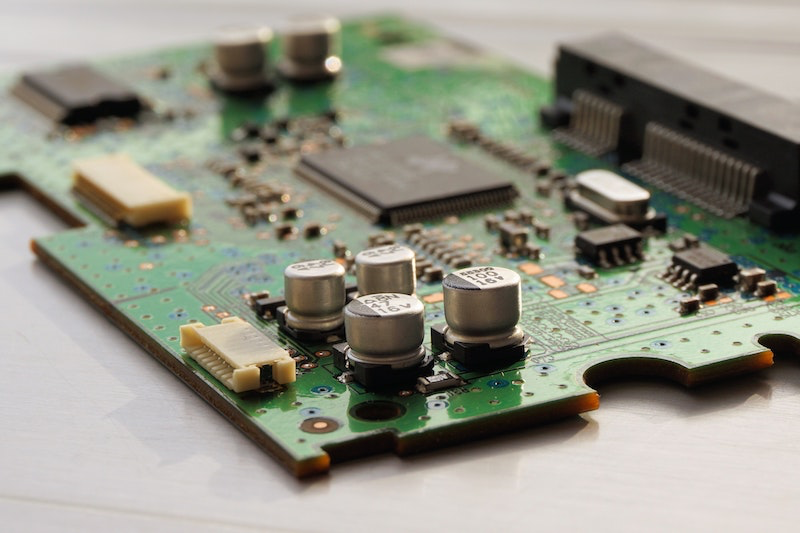
To some extent, it feels like the same principle applies to AI, too. The tools that are available to the general public today were available for commercial and industrial applications, and not all that long ago. Take AI-powered audio restoration as an example; five years ago, if you wanted to clean dialogue or musical recordings, you’d need to invest in a DAW, along with a third-party tool like iZotope RX to get the job done. Now, there are free solutions such as krisp.ai and media.io, the latter of which even works within your browser.
Not only is access to AI-powered tools improving but their speed and effectiveness are improving too. These improvements constitute a fair summary of what’s happened recently in the world of AI production tools. Occasionally though, there are new advancements and innovative ways of harnessing the power of artificial intelligence to accomplish new feats. Let’s take a look at a few of these advancements.
How AI is transforming MIDI generation
As a music producer, if you’ve watched any Youtube videos in the last few years you’ll have probably seen your fair share of adverts for MIDI packs and chord generation plugins. Historically, these tools come with a ton of pre-baked MIDI files that you can sift through and drop into your DAW. MIDI is often recommended based on scale, tempo, style or instrumentation.
Now that AI is involved, there are plugins that also recommend MIDI according to rhythm, groove and pattern. Plugins like InstaComposer 2 will analyse a source such as another element of your composition or a MIDI pattern, and generate MIDI to complement it melodically, rhythmically and structurally. If you don’t like the MIDI it suggests, simply hit “GO” and it’ll generate some more MIDI for you to try with the rest of your track.
Naysayers may argue that using these types of tools is cutting corners. Ultimately though, you’re still making the decision on which MIDI file to use. Once upon a time, people said the same about sampling – now some artists are hailed for their exquisite sample selection. As famed mix engineer Bobby Owsinski points out during his appearance on the Make Better Music podcast, even synthesizers were once considered to be taking over humans.
Sound design with a little help from AI
You could argue that sound design is one of the areas of music production where AI has had the least impact over the last few years. Of course, there are exceptions such as Mawf, which we looked at earlier this year. This nifty little plugin uses AI to morph, or “Mawf” between an audio source and its inbuilt models of real-life instruments including a trumpet or saxophone. Mawf is still in Beta and can be considered as a kind of proof-of-concept for machine learning-powered sound design plugins.
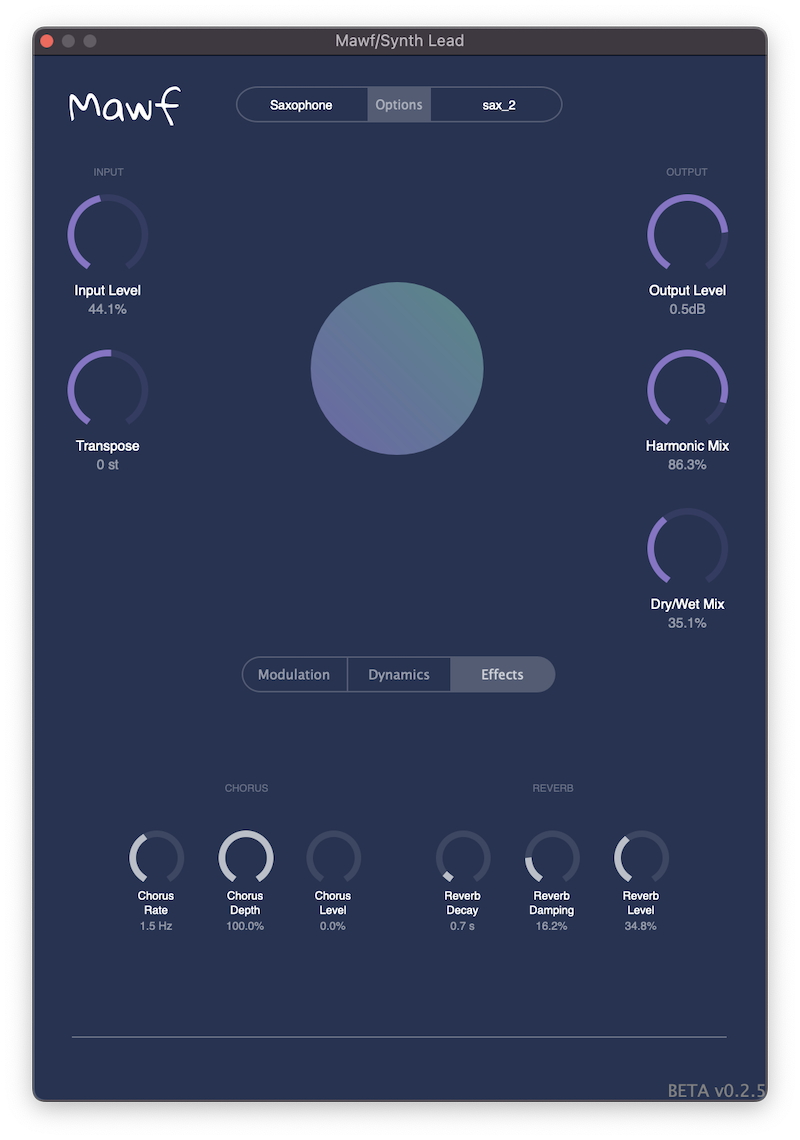
As for the most recent developments, Sonic Charge’s second iteration of their popular Synplant plugin, Synplant 2, has been causing somewhat of a stir in the production world of late. One of the key additions to Synplant 2 is its Genopatch tab, which allows the user to load in any audio sample, which the plugin will then analyse, interpret and generate into a number of iterations. These iterations are then fully tweakable within the plugin’s other settings. This might sound like a fancy sampler with a few extra bells and whistles, so we advise watching the synth in action to really understand its potential. Better yet, you can download Synplant 2 for a free three-week trial.
Processing and even creating vocals with AI
We’ve briefly addressed the moral questions around production tools that use artificial intelligence, but it’s when we get into vocal production that things can start to get a little sticky. The power of AI means that you can essentially train a machine to recreate any individual’s vocals, with or without their consent. As well as the musical grey area this puts us in, the technology has huge security implications too, but that’s all a bit above our pay grade!
Assuming you don’t want to rip off your favourite chart-topping artist or scam anyone with a deepfake, this technology can also be used for good. Musicfy stands out as a useful AI tool that works with vocals as both an input and an output, and because it doesn’t emulate popular artists’ vocals, you can avoid any legal issues down the line.
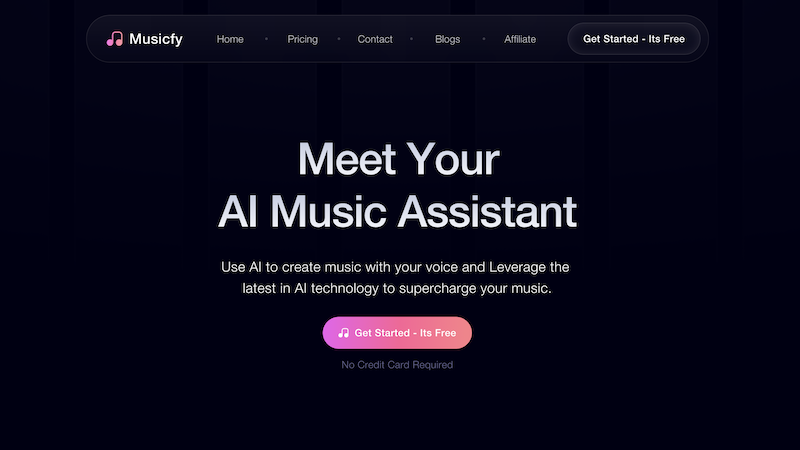
Musicfy allows you to input a piece of audio, for example, a badly sung demo take, and it will use AI to generate a professional-sounding take according to one of the many inbuilt vocal models. It doesn’t just output vocals, though, you can hum in a melody and it will generate an instrumental track, or you can give it eight bars of beatboxing and it will generate a drum loop. In this sense, it’s similar to Synplant 2 but for vocals and instruments rather than synth patches.
There are several similar vocal tools on the market today, including Lalals, which comes with some slightly dubious legal issues due to it mimicking the likes of pop stars including Drake, Beyonce, Ed Sheeran et al. There’s also Voice-swap, which is much more straightforward from a copyright perspective, as it boasts a system for gaining a licence to use the resulting vocals in music that you want to release. You can read more about Voice-swap in our article on The New Generation of Music-Making Tools.
Now, AI can mix your music for you
For many, the mixing stage of the music production process is a necessary evil, and so this is an area in which artificial intelligence can be particularly beneficial. AI mixing tools also seem to be subject to less criticism than tools to aid parts of the production process that are arguably more creative.
iZotope is known for its high-quality suite of music production software, and they’re well-versed in artificial intelligence and machine learning. They’ve been using the technology in their Neutron mixing package since 2016. Since then, Neutron and its use of AI has become increasingly refined. A huge draw for this product is its ability to analyse your reference tracks, and make mix alterations in order to bring your own mix in line with your references.
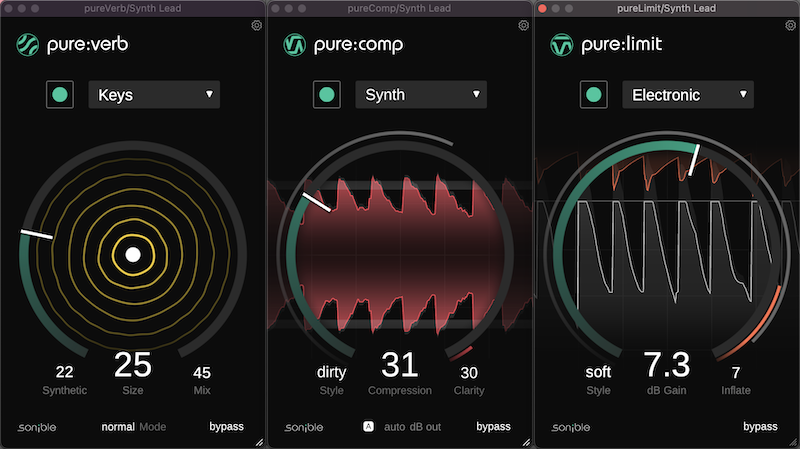
Neutron is a comprehensive mixing package that despite its AI capabilities, may seem to have too many moving parts for more junior producers. For those wanting to keep things nice and simple, Sonible’s pure:bundle is your answer. To all intents and purposes, these compact little plugins are AI-powered one-knob plugins. Simply place them on a channel or bus, select the relevant profile then hit record. The plugin will analyse your signal and make the appropriate adjustments under the hood. Each plugin also gives you a few simple controls for fine-tuning the processing to taste - it couldn’t be simpler.
Apply those finishing touches with AI
This is another part of a song’s creation that most of us would probably prefer to avoid but if you want your tracks to hold their own on the radio or in a club, they’ll need to be mastered. Mastering is somewhat of a dark art for a lot of artists, so enrolling the help of an AI tool can help get your tracks over the finish line.
Once again, iZotope has a solution in this field. Where their Neutron package is aimed squarely at mixing, their Ozone tools are geared towards mastering. You get the same advanced AI analysis tools as in Neutron which will recommend mastering decisions according to the reference tracks you feed into the plugin.
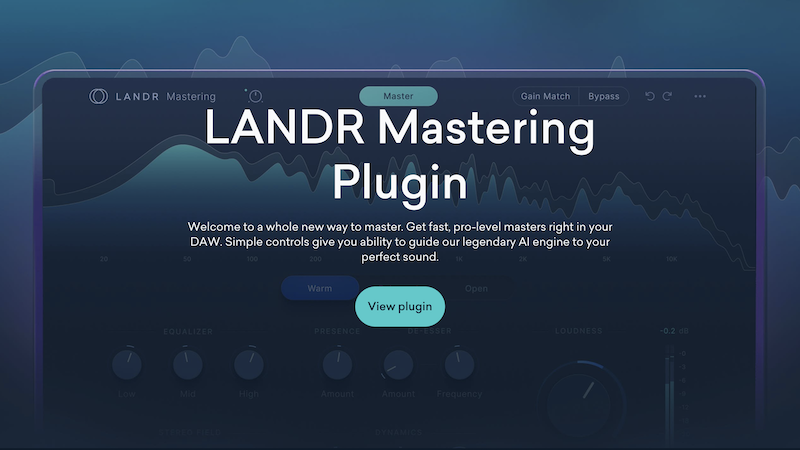
When talking about AI-powered mastering solutions, we’d be remiss not to mention that there are online mastering services from the likes of Waves, eMastered, and Masterchannel, although it’s fair to say their effectiveness is hotly debated. Another such service is LANDR, who have now entered the plugin market with Mastering Plugin. The plugin is said to contain the same AI mastering engine as their online tool, but offers further control over the processing that isn’t present online. This puts an added level of control firmly in the hands of the user, while still offering the same technological advantages as the all-out AI version.
AI can help you outside the studio, too
Writing, design, and promotion are all parts of the music production journey that many producers struggle with. After all, you can’t be expected to be a great producer as well as a strong writer and graphic designer. Thankfully, there are AI tools outside of the DAW that are intended to help you on your music production journey. Whether you’re creating electronic press kits, writing artists bios, or even designing album artwork, artificial intelligence can help you to achieve your goals.
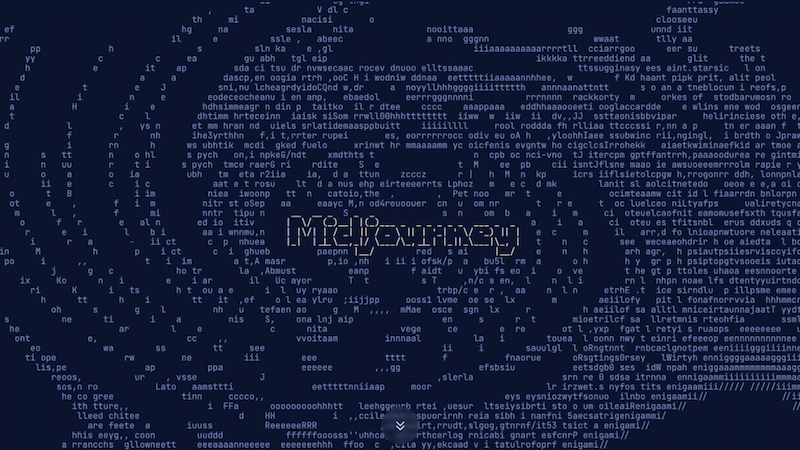
For writing, Chat GPT is the obvious choice. Give the free online tool some prompts on the length, tone, and content you want your bio to take. Assuming you’re not already a superstar DJ with a Wikipedia page, you’ll also need to feed it some of your credentials and accolades. There are also more specialised AI writing tools such as Jasper or Ahrefs. You could even try giving a few different tools the same prompts, and then consolidating the best parts of each.
For creating album artwork, visual AI generation tools such as Dall.E 2 and Midjourney are capable of creating high-resolution imagery with just a few written prompts. Occasionally, a more specific artwork generator achieves “trend” status; you’ve probably seen people sharing their EPIK-generated AI yearbook images.
What’s next?
Without a crystal ball, our guess as to what’s next for AI music production tools is as good as anyone’s. As per the Moore’s Law hypothesis that we discussed earlier, it’s fair to assume that AI will continue to get smarter, quicker, and more accessible as time goes on. Presumably, there are plugin developers working hard behind the scenes as we speak, to bring you the next most powerful AI-fueled production tools, and only they really know where else artificial intelligence and machine learning will take us next.
FAQs
Will music producers be replaced by AI?
Some aspects of music production have the ability to be replaced by AI, but it seems most likely that AI will eventually find its place as a tool used to help music producers do more.
Can AI write a good song?
Artificial intelligence can write very convincing songs in many popular styles. What AI may lack is the ability to innovate with new directions for styles and genres.
Are songwriters using AI?
Some songwriters are using AI to help them do their job. This could range from AI tools that provide drum beats for backing, all the way to suggesting chords and even melodies for the songwriter to use or build upon.
Can I use AI to mix songs?
Artificial intelligence can provide a very useful starting point for mixing a musical project. By analysing the various tracks for their content relative to each other, AI can suggest processors to apply, but music producers may want to change the settings to reach more specific outcomes.
Can AI master a song?
Artificial intelligence in mastering has a long history compared to many other strands of AI in music production. Online mastering services have existed for a while, and claim to provide high-quality mastering on a part with professional mastering engineers.

